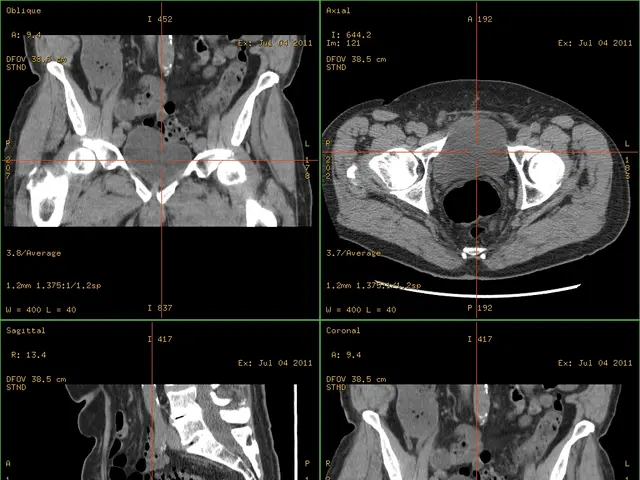GLP-1 medications, such as Ozempic, potentially reduce alcohol intake
A recent study, led by Prof. Elisabet Jerlhag from the Department of Pharmacology at the Institute of Neuroscience and Physiology, The Sahlgrenska Academy at the University of Gothenburg, has found that the drug semaglutide, known by brand names Ozempic and Wegovy, has shown potential in reducing alcohol consumption and alcohol cravings in individuals with alcohol use disorder (AUD).
Key Findings
The study, published in JAMA Psychiatry, demonstrated that semaglutide can decrease both the frequency and quantity of alcohol intake. In a 2025 study, weekly injections of semaglutide helped reduce cravings and alcohol consumption in people with AUD.
GLP-1 drugs like semaglutide are thought to act on brain pathways related to reward and satiety, potentially reducing the appeal of alcohol by affecting these pathways.
While these findings are promising, semaglutide is not yet FDA-approved for treating AUD. It should be considered as an adjunct to standard treatments rather than a standalone solution.
Preliminary phase 2 clinical trials have highlighted the potential benefits of semaglutide in reducing heavy drinking and cravings among adults with AUD.
Considerations
The use of semaglutide for AUD is considered off-label, meaning it is not explicitly approved for this purpose. This may lead to insurance coverage issues and necessitates careful clinical oversight.
Although there are no known interactions between alcohol and semaglutide, alcohol consumption can undermine the benefits of semaglutide, particularly for weight management, by increasing caloric intake and reducing metabolic efficiency.
Further research is needed to fully understand the efficacy and long-term benefits of semaglutide in managing AUD. Clinical studies in patients with AUD could show if semaglutide can be used clinically.
The study did not test the effect of semaglutide on drinking habits and drinking relapse in male mice. It also did not include female mice in the research. Further research may be needed to better understand the underlying factors and how response differs between males and females.
Implications
The study suggests that semaglutide works by decreasing the sense of reward typically experienced with alcohol consumption. Semaglutide's ability to decrease intake and preference for rewarding foods suggests a broader suppressive effect on motivation for rewards, which may be beneficial for individuals with addictive behaviors beyond alcohol.
If further research confirms these findings, semaglutide could provide a new treatment option for people struggling with alcohol use disorder. However, it's important to note that help for AUD can involve a combination of several strategies and help from specialists.
Focused and intensive outpatient treatment programs, residential treatment programs, and sober living programs can be helpful for patients who are ready and motivated to get clean. Community support groups like AA, Dharma Recovery, Refuge Recovery, and Smart Recovery can also be very helpful.
Depending on the severity, patients with severe AUD often need to be medically detoxed, as alcohol withdrawal is a potentially deadly condition.
In conclusion, while semaglutide shows promise in reducing alcohol consumption, further research is needed to fully understand its efficacy and long-term benefits in managing AUD. If you or someone you know is struggling with AUD, seek help from a healthcare professional or a support group.
- The study in JAMA Psychiatry indicates that semaglutide, used for treating type 2 diabetes, also shows potential in decreasing alcohol cravings and consumption, making it a potential treatment for health-and-wellness issues like alcohol use disorder (AUD).
- As semaglutide, a GLP-1 drug, affects brain pathways related to reward and satiety, science suggests it might reduce the appeal of alcohol and thus be beneficial for mental-health issues like AUD.
- Despite the promising findings, semaglutide is not FDA-approved for treating AUD, and researchers stress the need for more therapies-and-treatments, such as rehabilitation programs and support groups, to support individuals dealing with AUD.




